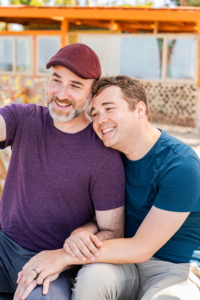Announcing Impact Cubed
Working together is working smarter.
Something new is coming:
A place for funders to access customized tools, resources and services to magnify their charitable impact.
Our team at Leichtag Foundation has learned that tackling complex problems in our community takes integrated funding and working together.
As a way to make our grantmaking go further, we join with other funders to leverage greater resources and bring more attention to a solution.
We’re launching Impact Cubed for philanthropists who want to take this same leap and work together.
Impact Cubed supports philanthropists who want to take their giving to the next level with customized counsel and coordination. It is an independent 501(c)3 nonprofit spearheaded by Leichtag Foundation’s seasoned staff.
Here’s where Impact Cubed can take your giving:
- Trust that complex co-funding opportunities will be expertly managed.
- Take bigger steps with more funding for the issues you care about.
- Gain savvy grantmaking practices, procedures, and administration for private foundations and individuals.
- Build on deep, nuanced knowledge of specific granting areas including Jewish life and culture, Israel, food systems, scholarships, Holocaust education, democracy building and civil society, foster youth, education, immigration, refugee support, and more.
- Be informed with curated news and resources from across the field of philanthropy as well as rich data.
Impact Cubed will officially launch later this year with a website and events at Leichtag Commons. For now, enjoy the first edition of Impact Cubed’s bulletin: recommendations, great reads, data to inform your giving, and more!
Letter from Charlene Seidle
Impact. What does it mean to you? Your carbon footprint? Your children’s education? Smiling at the elderly man while out for a stroll in your neighborhood? The food you put in your body? How you honor your parents?
Our community and our world abound with opportunities to impact. Each of our choices produce rippling effects, and we often never know the outcomes of even simple choices.
Philanthropy presents even more perplexing unknowns. Sol Price, founder of the Price Club and an iconic philanthropist and civic leader once reflected to me that it was easier for him to make money than to give it away. At the time, I was a young and inexperienced professional, and I was floored and confused, not understanding what he meant. He went on to clarify that in business, he had a clear bottom line, making financial profit; that could easily be assessed through a quick glance at his balance sheet. Philanthropy was different however. In that realm, he was seeking social profit and even the most complex spreadsheets and data often didn’t demonstrate the full set of potential impacts and outcomes.
That was 20 years ago. In the meantime, new demographic, technological, political, environmental, humanitarian and social realities set in every day. Change is rapid and unrelenting. How do we understand ourselves and our communities if we want to make a positive impact on the world?
Impact Cubed was established by the Leichtag Foundation not to provide answers but rather to provide framing, space, context and information to ask the questions more thoughtfully, collaboratively and productively. In pursuit of our philanthropic mission, we’re paying attention to demographic changes and how they relate to the ways people think and give. We’re keeping current on our community and our society’s most urgent challenges. We’re testing and demonstrating new ideas to achieve resiliency and the common good. Impact Cubed takes all that work and makes it public.
What does that mean? We’re workshopping big ideas, and right now we’re working to form and facilitate funder collaboratives, consulting with families and nonprofits to strengthen their capacity to do good, sharing giving opportunities, spearheading leadership initiatives and convening stakeholders for education and conversation.
The whole world is a narrow bridge. The important thing is not to be afraid. So said Rebbe Nachman of Breslov, a Hasidic sage. This quote magnetically pulls at me and repels me at the same time. How can we not be afraid? Did Rebbe Nachman never read the front page of the New York Times? It’s a mad mad world (in the words of that other great Gary Jules). But as I’ve thought more about this quote, recently I’ve been speculating that while fear is appropriate, even mandatory, paralysis is not. For Rebbe Nachman, being afraid was accepting a destiny in which we as humans are too tiny and powerless to make an impact. On the contrary, he teaches, accepting that fear would be a waste of our lives.
Leonardo da Vinci said “I have been impressed with the urgency of doing. Knowing is not enough; we must apply. Being willing is not enough; we must do.”
Let’s learn and do together. Enjoy this first round-up and look out for more to come.
Warmly,
Charlene
San Diego Grantmakers Conference: The Power in Philanthropy
Some of our team attended San Diego Grantmakers‘ 2019 conference and grappled with how to deal with the inherent power that comes with being in a position to give resources to nonprofits. This dynamic is one thing to realize and another to address. When we’re trying to make our funds go the furthest, how we’re giving money away can be as important as where we give it. The day included panel and keynote speakers who all shared different perspectives on what distributing power can achieve. Here are five takeaways from our team after a day of considering how we can be more mindful of this dynamic, distribute that influence for more good, and grow and share our power.
“The Skillman Foundation’s CEO Tonya Allen reminded us that our grantmaking strategies have to create change, not just satisfy a requirement. Beyond that, we can use more than just economic capital. We can wield our power in other ways to advance the impact of our funding.” – Cassandra
“Professor john a. powell calls for our strategies to support co-creating spaces for belonging in the communities we serve. Through this perspective, my role within the Impact Cubed as an organization moves from simply processing grants and donations to actively participating in the redemptive work of making our community a home for everyone. “ – Mitchell
“Khalid Alexander from the Social Equity Collaborative Fund urged us to invite the people we’re funding into the room with us. We can’t make decisions for communities when they aren’t involved in the process. We have the opportunity to share our power with them so that they can make funding decisions for themselves.” – Jordan
“A panel of millennials engaged in philanthropy spoke candidly about their life experiences with power – surviving difficult childhoods when they didn’t have it, seeing its effects from afar, gaining it with life changing results, and needing more of it to change their own communities firsthand. These future-oriented perspectives urged us to change our practices around giving to share influence. This provoked a question between other conference attendees: is training nonprofits to work within philanthropy’s culture and norms is akin to coaching all people to adopt more traditionally masculine qualities to advance professionally? How can nonprofits and philanthropy define best practice together?” – Jessica
“While discussing wielding power to create equity change, James Head, President & CEO of the East Bay Community Foundation encouraged grant makers to transform their institutions to be more responsive to the community. This includes assessing internal practices, such as compensation, benefits, employee mentoring programs, and employee resource groups, through a social justice lens to create opportunities for organizational and individual learning and growth. By restructuring financial, social, and human capital to support movements, organizations have an opportunity to transform what community advocacy work means and work towards a path of building a justice-focused identity. I appreciated this critical reminder that social justice cannot be achieved at the expense of others.” – Vanessa
Here are more resources from the San Diego Grantmakers Conference, including National Council for Responsive Philanthropy’s Power Moves tool and session notes.
Armchair Interview with Angelica Berrie
“Philanthropy is the gift of who you are, not the size of your check, or the recognition you receive. It does not have to be bold or dramatic. Philanthropy reflects who you are as a person. This is a message that I love to share as it has enriched my life and given me a sense of fulfillment and purpose.” Angelica Berrie, President of The Russell Berrie Foundation and new Leichtag Foundation Board Director, shared these insights and others during an armchair interview at Leichtag Commons the evening of June 11th. Jeffrey Solomon, a Leichtag board colleague and longtime President of the Andrea and Charles Bronfman Philanthropies, facilitated the discussion, which touched on Angelica’s approaches to giving, leadership and lifelong learning. Following are some highlights.
Growing up in the Philippines, Angelica said that she had no clue what philanthropy was until she met her husband Russ Berrie, a New Jersey entrepreneur who made his fortune selling teddy bears and trolls. Moving from the Philippines to New Jersey was a culture shock as Angelica recalled going from passing the collection basket at Sunday mass to pledging huge amounts publicly at fundraisers.
The Russell Berrie Foundation already had clear ground rules and focus areas when Angelica became involved, including diabetes research, Jewish causes, community needs in New Jersey and Israel, and entrepreneurialism.
Russ felt strongly that, given his hard work and success, a career in sales was every bit as worthy of respect and prestigious as a career in law or medicine. One of Russ’s ambitions was to live long enough to have Italian and Jewish mothers refer proudly to their sons as “my son the salesman.” To this end, the Foundation provided funding to create the Russ Berrie Institute for Professional Sales at New Jersey’s William Paterson University. This is the only academic sales degree program of its kind in the world and most of the students are the first in their families to attend college.
A diabetic, Russ was dedicated to supporting diabetes’s related research and education. For many years, the Foundation has funded the Naomi Berrie Diabetes Center at Columbia University. As part of the Center’s work the Foundation is helping to fund cellular therapy research that one day may lead to a cure for diabetes.
Angelica and Russ were an interreligious couple. He was Jewish, though non-observant, and she was Catholic. While Angelica didn’t convert to Judaism until after Russ’s death, she had participated in Jewish communal life in New Jersey and supported causes in Israel for many years. For her conversion, Angelica studied at the Shalom Hartman Institute in Jerusalem, learning from notable scholars such as David Hartman and Donniel Hartman. The experience taught her about the power of immersive learning experiences, which she has applied to her philanthropy. She also discovered that, for her, to be a Jew meant embarking on a journey of lifelong learning.
When asked to describe one of her favorite grant-funded programs, Angelica described the John Paul II Center for Interreligious Dialogue in Rome, which she created in 2007 at the Pontifical University of St. Thomas Aquinas in Rome to fund priests pursuing graduate degrees in interreligious studies. Among the 100 fellows from 33 countries who have gone through the programs (studying with a rabbi, among other things) is a Nigerian who decided on the priesthood after a priest in the next village was beheaded. Angelica personally accompanies the fellows on an annual ten-day trip to Israel and is proud of interfaith understanding the program has fostered.
The Berrie Fellows program, launched in 2004, demonstrates the Foundation’s notion that leadership is truly a gift you leave behind. Angelica remarked that the program is a successful investment in raising the individual and collective capacity of lay leaders in the northern New Jersey Jewish community. Participants engage in an intensive 18-month fellowship that incorporates leadership skill development and immersive Jewish learning. Berrie Fellows now chair many of the community’s boards of Jewish organizations and synagogues.
In 2011 Angelica coauthored, A Passion for Giving, intending to inspire other philanthropists. She stresses the importance of learning from and with others and credits a number of resources in helping her to find her philanthropic way. Through a series of interviews, the book provides real-life examples of the fundamental issues related to starting a philanthropic enterprise – from determining purpose to assessing impact, to grappling with multigenerational giving.
When asked why she joined the Leichtag Foundation Board, Angelica responded that she has long been impressed with the Foundation’s overall work and growth as well as its commitment to continuous learning and relationship building. She also noted the Foundation’s dedication to providing both professional and volunteer leadership opportunities for women.
Jewish Funders Network/HIAS Border Tour
Background
While only 20 minutes away from downtown San Diego, the U.S.-Mexico border at San Ysidro, feels like a world away. As the largest land border crossing in the world, it has increasingly become a highly active location for deportations, human rights violations, and abuse by Customs Border Protection and Immigration and Customs Enforcement. Many years of devastating economic and immigration policies have created a situation in which thousands of people, coming primarily from Central America, have traveled hundreds, if not thousands of miles to flee extreme danger and suffering in their homelands in search of a safer, better life. According to the International Rescue Committee, people living in Central America’s Northern Triangle region, which comprises Honduras, Guatemala and El Salvador, are enduring violence comparable to that in a war zone. While they arrive with hope of a safer, better life, they also face enormous challenges and in desperate need of help.
A Border Tour
On June 2 – 4, Jewish Funders Network and HIAS brought a delegation of funders and foundation professionals to tour both sides of the border to witness and learn about this complicated and dynamic situation. Key to the experience were the local nonprofit organizations providing critical services to asylum seekers. Leichtag Foundation’s President and CEO, Jim Farley, and Vice President of Philanthropy, Sharyn Goodson participated in the convening. Below are some of their learnings.
Shelters South of the Border
Migrant shelters in Tijuana provide hope and a critically-needed respite for those running from violence and poverty. The shelters provide constant services, including meals, accommodations, and legal advice. They are filled beyond capacity and there are days when people are turned away because of the shortage of beds and supplies. The JFN funder group visited Casa del Migrante, which serves mostly male migrants over 18 years of age, sometimes fathers traveling alone with children. Centro Madre Asunta, a sister organization, shelters women and children. It has 44 beds for the 130 women and children on site. Everyone who arrives is carrying everything they own on their backs. Mostly they are single mothers with one to three children. Upstairs at the shelter is a classroom where, by day children are taught basic subjects, a practice that offers a much-needed sense of normalcy and routine during a chaotic time. By night, the classroom is converted to sleeping quarters. Both shelters are in constant need of supplies.
San Diego Social Service Support
On the U.S. side of the border, San Diego Rapid Response Network (Network) is a coalition of human rights, service and faith-based organizations, attorneys, and community leaders dedicated to aiding immigrants and their families. The Network was activated to respond to increased immigration enforcement activities within San Diego County and humanitarian issues arising at the border, including widespread family separation and unjust deportation of asylum seekers presenting at the Port-of-Entry.
Led by Jewish Family Service of San Diego, the Network opened a migrant shelter in late October 2018, the US began releasing hundreds of migrant families on to San Diego’s streets without following the usual protocol that ensures asylum seekers have travel plans and the means to join relatives and friends elsewhere in the country. Upon release, these families who do not speak English have no money, no cellphones and no tickets to travel. Many are also sick and dehydrated. Without the shelter and its services, they are great risk of becoming victims of human trafficking, or ending up on the street.
The shelter provides meals, medical care, legal services, and travel aid to 300 individuals; nearly 60-70 families a day. A total of over 16,000 people have been served to date. Most people stay 24 to 48 hours before leaving for their final destinations, where they will pursue the legal process required for asylum. While the shelter receives state funding for operations, additional support is needed to provide free legal representation and to fund bond fees for these families, as well as basic necessities, such as food, blankets and bedding, portable showers, baby/children needs, and toiletries. The shelter’s Amazon wish list includes specific, needed items.
In addition to its work in leading migrant shelter operations, Jewish Family Service offers an array of refugee resettlement services, working in partnership with HIAS for many years to ensure the safety and successful resettlement of refugees referred to San Diego County. The agency also provides comprehensive legal services for immigrants and their families. Services are provided for free or at low-cost and include answering questions about legal status, translating and submitting paperwork, and assisting with removal defense. The team includes immigration attorneys and Department of Justice accredited representatives dedicated to educating and advocating on behalf of immigrants and refugees.
Systems Change: A New Border Vision
In addition to learning from direct service providers, the JFN delegation also received a briefing from Andrea Guerrero, executive director of Alliance San Diego and a leader in the Southern Border Communities Coalition. The Coalition is a group of more than 60 organizations from San Diego to Brownsville, Texas, that work to promote policies and solutions that improve the quality of life of border residents. The Coalition just released A New Border Vision, a comprehensive plan promoting systems change in response to decades of border policies that have cast aside human rights, criminalized migrants and engaged in deadly and unaccountable border enforcement, undermining public safety for all. In a manner consistent with national values and global best practices, the plan seeks to expand public safety, protect human rights, and welcome residents and newcomers.
Opportunities for Philanthropy
As the experience revealed, there are many philanthropic opportunities to address this issue.
Primarily, these involve intervening to support direct services to asylum seekers requiring immediate help and include emergency shelter, legal services, food, medical aid, and clothing.
Organizations providing these services include:
- Casa del Migrante, and Centro Madre Asunta, migrant shelters in Tijuana
- Jewish Family Service of San Diego, which serves as the fiscal agent for the San Diego Rapid Response Network migrant shelter and also provides a host of refugee resettlement services.
- Casa Cornelia Law Center
There are also opportunities to support system change by funding efforts to advocate for improvement to current systems, laws and policies. Organizations working in this realm include:
- Alliance San Diego
- Southern Border Communities Coalition
- San Diego Organizing Project
- ACLU San Diego and Imperial Counties
For more information or any questions, please contact Sharyn Goodson at sharyn@leichtag.org.
Background
While only 20 minutes away from downtown San Diego, the U.S.-Mexico border at San Ysidro, feels like a world away. As the largest land border crossing in the world, it has increasingly become a highly active location for deportations, human rights violations, and abuse by Customs Border Protection and Immigration and Customs Enforcement. Many years of devastating economic and immigration policies have created a situation in which thousands of people, coming primarily from Central America, have traveled hundreds, if not thousands of miles to flee extreme danger and suffering in their homelands in search of a safer, better life. According to the International Rescue Committee, people living in Central America’s Northern Triangle region, which comprises Honduras, Guatemala and El Salvador, are enduring violence comparable to that in a war zone. While they arrive with hope of a safer, better life, they also face enormous challenges and in desperate need of help.
A Border Tour
On June 2 – 4, Jewish Funders Network and HIAS brought a delegation of funders and foundation professionals to tour both sides of the border to witness and learn about this complicated and dynamic situation. Key to the experience were the local nonprofit organizations providing critical services to asylum seekers. Leichtag Foundation’s President and CEO, Jim Farley, and Vice President of Philanthropy, Sharyn Goodson participated in the convening. Below are some of their learnings.
Shelters South of the Border
Migrant shelters in Tijuana provide hope and a critically-needed respite for those running from violence and poverty. The shelters provide constant services, including meals, accommodations, and legal advice. They are filled beyond capacity and there are days when people are turned away because of the shortage of beds and supplies. The JFN funder group visited Casa del Migrante, which serves mostly male migrants over 18 years of age, sometimes fathers traveling alone with children. Centro Madre Asunta, a sister organization, shelters women and children. It has 44 beds for the 130 women and children on site. Everyone who arrives is carrying everything they own on their backs. Mostly they are single mothers with one to three children. Upstairs at the shelter is a classroom where, by day children are taught basic subjects, a practice that offers a much-needed sense of normalcy and routine during a chaotic time. By night, the classroom is converted to sleeping quarters. Both shelters are in constant need of supplies.
San Diego Social Service Support
On the U.S. side of the border, San Diego Rapid Response Network (Network) is a coalition of human rights, service and faith-based organizations, attorneys, and community leaders dedicated to aiding immigrants and their families. The Network was activated to respond to increased immigration enforcement activities within San Diego County and humanitarian issues arising at the border, including widespread family separation and unjust deportation of asylum seekers presenting at the Port-of-Entry.
Led by Jewish Family Service of San Diego, the Network opened a migrant shelter in late October 2018, the US began releasing hundreds of migrant families on to San Diego’s streets without following the usual protocol that ensures asylum seekers have travel plans and the means to join relatives and friends elsewhere in the country. Upon release, these families who do not speak English have no money, no cellphones and no tickets to travel. Many are also sick and dehydrated. Without the shelter and its services, they are great risk of becoming victims of human trafficking, or ending up on the street.
The shelter provides meals, medical care, legal services, and travel aid to 300 individuals; nearly 60-70 families a day. A total of over 16,000 people have been served to date. Most people stay 24 to 48 hours before leaving for their final destinations, where they will pursue the legal process required for asylum. While the shelter receives state funding for operations, additional support is needed to provide free legal representation and to fund bond fees for these families, as well as basic necessities, such as food, blankets and bedding, portable showers, baby/children needs, and toiletries. The shelter’s Amazon wish list includes specific, needed items.
In addition to its work in leading migrant shelter operations, Jewish Family Service offers an array of refugee resettlement services, working in partnership with HIAS for many years to ensure the safety and successful resettlement of refugees referred to San Diego County. The agency also provides comprehensive legal services for immigrants and their families. Services are provided for free or at low-cost and include answering questions about legal status, translating and submitting paperwork, and assisting with removal defense. The team includes immigration attorneys and Department of Justice accredited representatives dedicated to educating and advocating on behalf of immigrants and refugees.
Systems Change: A New Border Vision
In addition to learning from direct service providers, the JFN delegation also received a briefing from Andrea Guerrero, executive director of Alliance San Diego and a leader in the Southern Border Communities Coalition. The Coalition is a group of more than 60 organizations from San Diego to Brownsville, Texas, that work to promote policies and solutions that improve the quality of life of border residents. The Coalition just released A New Border Vision, a comprehensive plan promoting systems change in response to decades of border policies that have cast aside human rights, criminalized migrants and engaged in deadly and unaccountable border enforcement, undermining public safety for all. In a manner consistent with national values and global best practices, the plan seeks to expand public safety, protect human rights, and welcome residents and newcomers.
Opportunities for Philanthropy
As the experience revealed, there are many philanthropic opportunities to address this issue.
Primarily, these involve intervening to support direct services to asylum seekers requiring immediate help and include emergency shelter, legal services, food, medical aid, and clothing.
Organizations providing these services include:
- Casa del Migrante, and Centro Madre Asunta, migrant shelters in Tijuana
- Jewish Family Service of San Diego, which serves as the fiscal agent for the San Diego Rapid Response Network migrant shelter and also provides a host of refugee resettlement services.
- Casa Cornelia Law Center
There are also opportunities to support system change by funding efforts to advocate for improvement to current systems, laws and policies. Organizations working in this realm include:
- Alliance San Diego
- Southern Border Communities Coalition
- San Diego Organizing Project
- ACLU San Diego and Imperial Counties
For more information or any questions, please contact Sharyn Goodson at sharyn@leichtag.org.
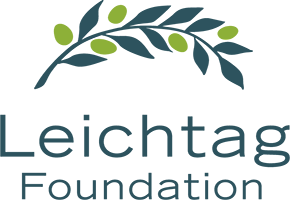
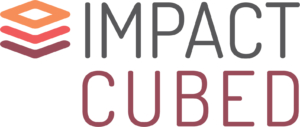

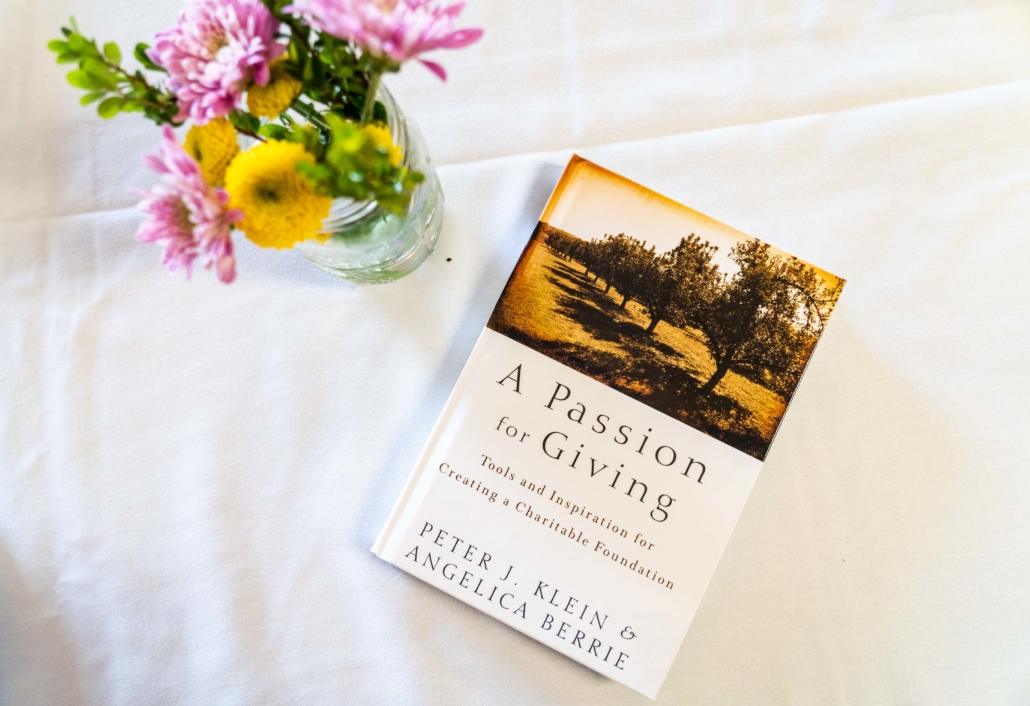

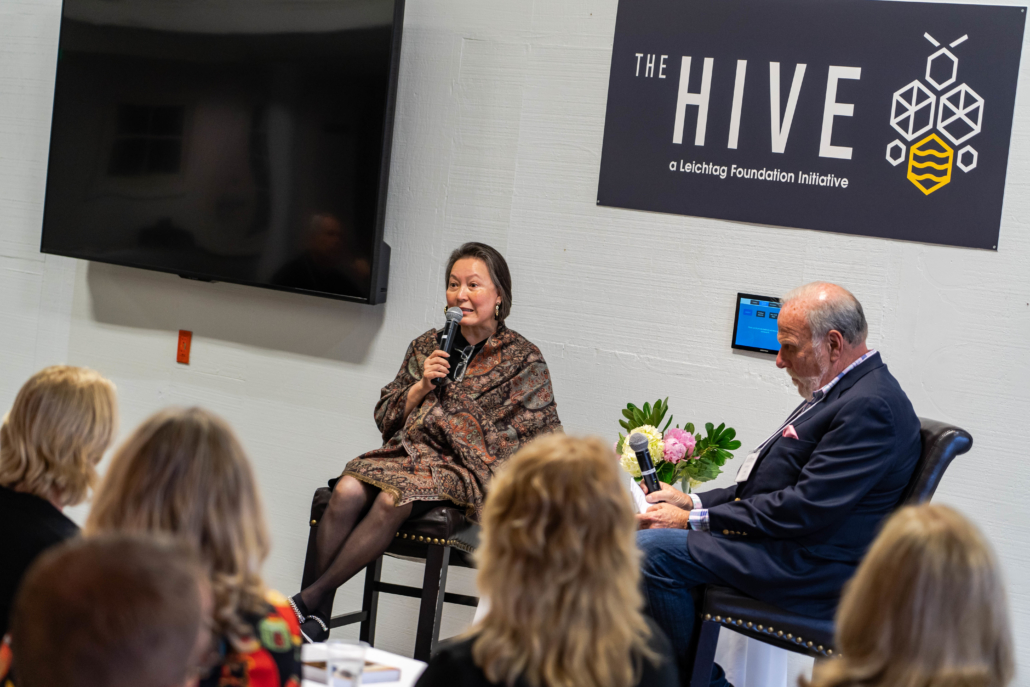
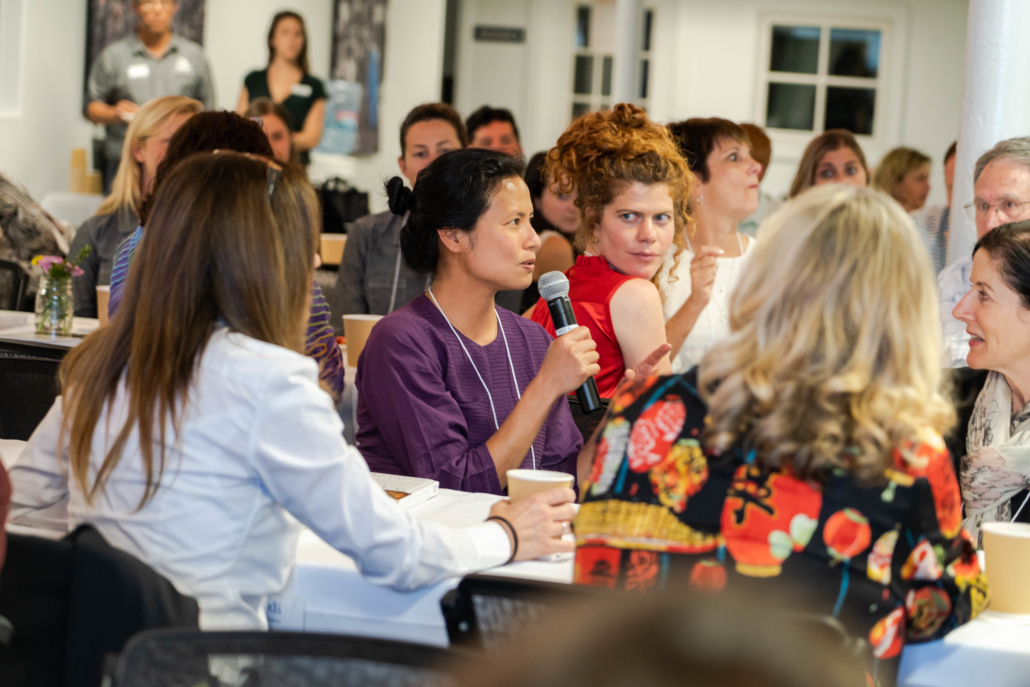

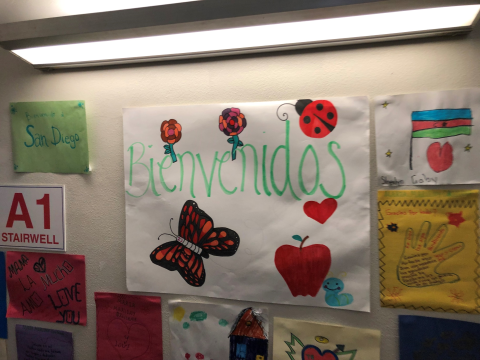
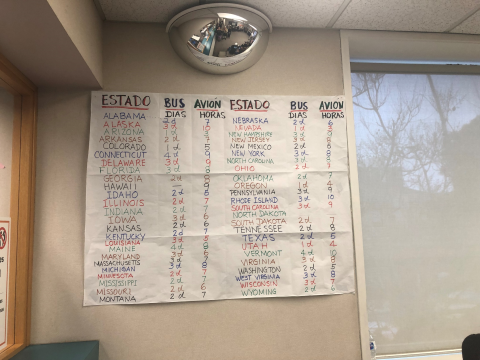
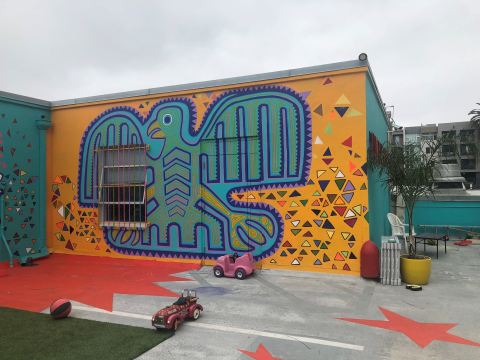


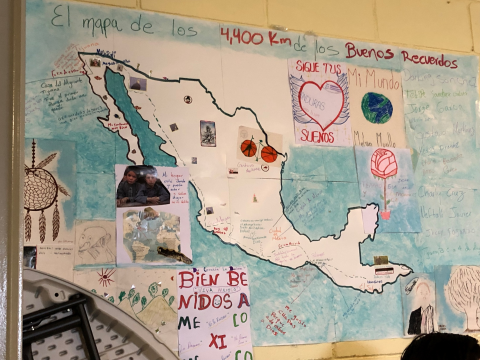
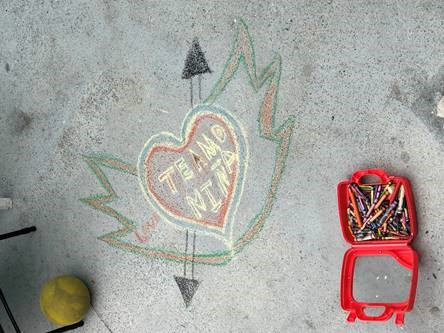
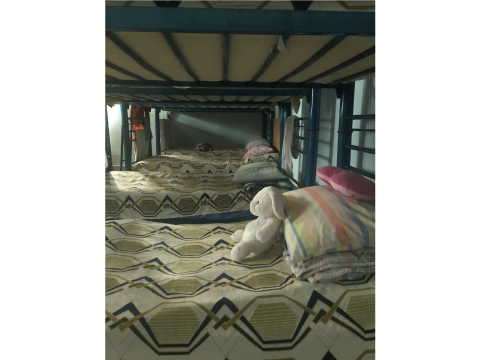
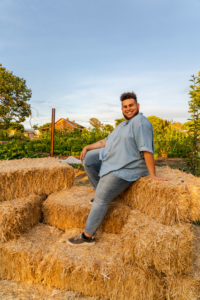 Black, Jewish and Queer. These three identities weave the fabric of who I am, but it took a long time to believe that they could exist together.
Black, Jewish and Queer. These three identities weave the fabric of who I am, but it took a long time to believe that they could exist together. Lee and Toni Leichtag established the Leichtag Foundation in 1991 following the sale of their business. Lee and Toni were lifelong entrepreneurs with a passion for innovation and for supporting talent. They believed that only with big risk comes big reward. Both born to families in poverty, Toni to a single mother, they strongly believed in helping those most in need and most vulnerable in our community. While they supported many causes, their strongest support was for young children and the elderly, two demographics who particularly lack voice in our society.
Lee and Toni Leichtag established the Leichtag Foundation in 1991 following the sale of their business. Lee and Toni were lifelong entrepreneurs with a passion for innovation and for supporting talent. They believed that only with big risk comes big reward. Both born to families in poverty, Toni to a single mother, they strongly believed in helping those most in need and most vulnerable in our community. While they supported many causes, their strongest support was for young children and the elderly, two demographics who particularly lack voice in our society.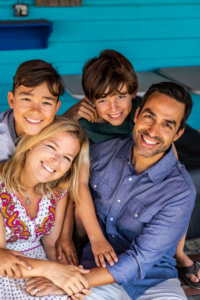 Lifelong Baltimoreans, Rabbi George and Alison Wielechowski and their sons, 11-year-old Lennon and 9-year-old Gideon, are more than pursuing the good life in Southern California. Having moved to San Diego more than three years ago, they are fulfilling a lifelong dream.
Lifelong Baltimoreans, Rabbi George and Alison Wielechowski and their sons, 11-year-old Lennon and 9-year-old Gideon, are more than pursuing the good life in Southern California. Having moved to San Diego more than three years ago, they are fulfilling a lifelong dream.
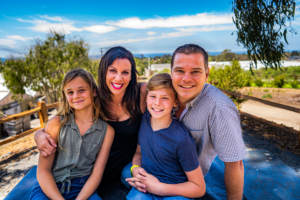
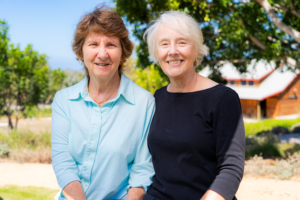

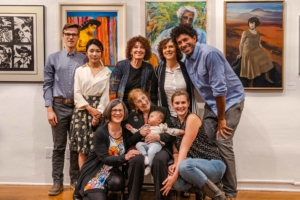
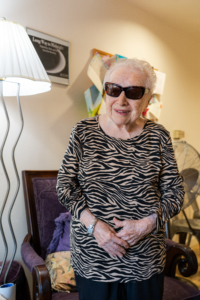
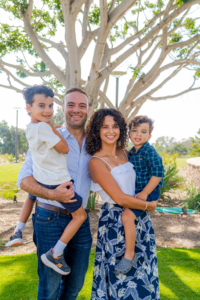
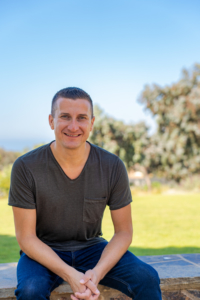 You would think that as the executive director of San Diego LGBT Pride, Fernando Zweifach López Jr., who uses the pronoun they, has done all the coming out they possibly can. A queer, non-binary individual who has worked for many years on civil rights issues, López also speaks openly and often about their father’s family, Mexican-American migrant workers who tilled the fields of rural California.
You would think that as the executive director of San Diego LGBT Pride, Fernando Zweifach López Jr., who uses the pronoun they, has done all the coming out they possibly can. A queer, non-binary individual who has worked for many years on civil rights issues, López also speaks openly and often about their father’s family, Mexican-American migrant workers who tilled the fields of rural California.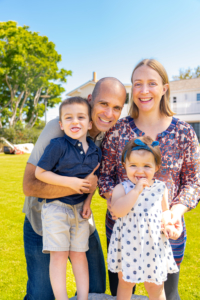 Stacie and Jeff Cook understand commitment. They live it.
Stacie and Jeff Cook understand commitment. They live it.